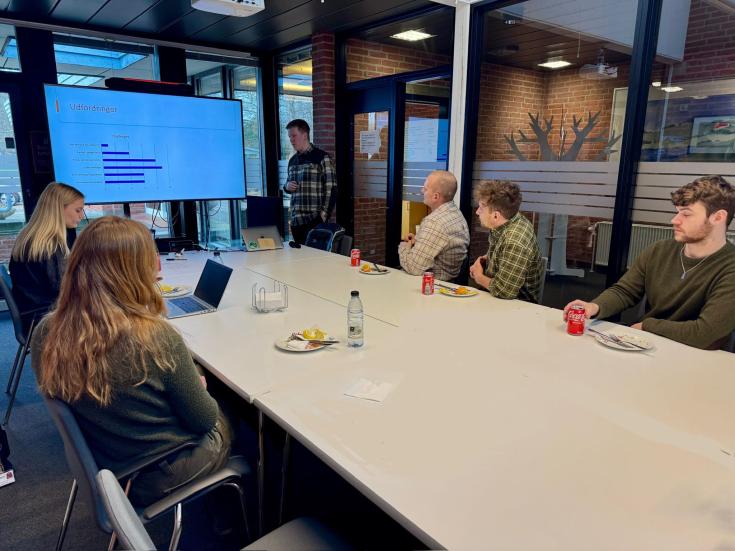2nd Stakeholder Meeting in Norddjurs Commune

The second stakeholder meeting was a dynamic gathering of project representatives, forestry students, and local stakeholders, all brought together with the goal of identifying effective practices within the forestry sector. The discussion was grounded in the results of surveys and interviews conducted with SMEs, officials, educators, and students, forming a comprehensive report that served as the foundation for the meeting.
As the participants assembled, the session commenced with a warm welcome from the project team. They outlined the purpose of the meeting, setting the stage for a conversation aimed at highlighting the best practices in forestry management. The atmosphere was one of collaboration and knowledge-sharing, with each attendee eager to contribute their insights and expertise.
A key segment of the meeting was an update on the project's progress, offering a deeper understanding of the broader strategy and policy tools in place. The discussion provided valuable context on planning and development strategies, ensuring that everyone was aligned with the project's objectives.
As the conversation evolved, the presentation of key findings took center stage. The project team, alongside local stakeholders, shared an analysis that covered industry trends, investment strategies, and examples of successful forestry practices. The discussion touched upon the importance of reinvesting in equipment and technology, emphasizing the role of sustainability in long-term planning. Industry trends were also a focal point, with participants reflecting on the growing demand for high-quality timber and the delicate balance between efficiency and environmental responsibility.
The heart of the meeting was an engaging discussion where participants exchanged perspectives on forestry best practices. One of the key takeaways was the importance of optimizing timber sorting to ensure minimal waste. Even lower-grade materials, such as wood chips, were recognized as valuable resources that could be repurposed effectively. The demand for premium-quality wood was also emphasized, highlighting the industry's commitment to maintaining high standards. However, a thought-provoking debate emerged around the idea of efficiency in forestry operations. While maximizing efficiency is often associated with cost savings and streamlined processes, concerns were raised about potential environmental impacts and the need for a more balanced approach.
Another recurring theme in the discussion was the significance of long-term planning. Participants stressed that forward-thinking strategies were essential to maintaining stability and sustainability within the sector. Planning beyond immediate business goals was seen as a crucial factor in securing the future of forestry management.
As the meeting drew to a close, it was evident that the exchange of ideas had been both productive and enlightening. The discussion underscored the need for a holistic approach that balances economic efficiency with environmental responsibility. The insights gathered during the session will play a pivotal role in shaping future strategies, ensuring that the forestry industry continues to evolve in a sustainable and forward-looking manner. The project team remains committed to working alongside stakeholders to refine and implement these practices, fostering an industry that thrives on innovation and responsible stewardship of natural resources.
